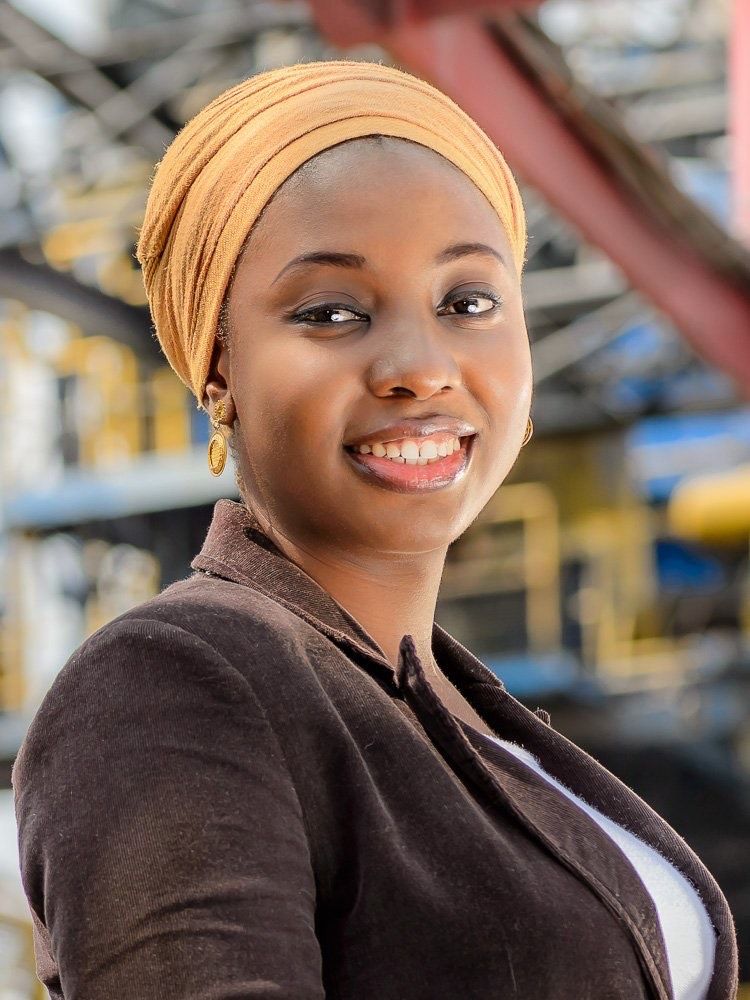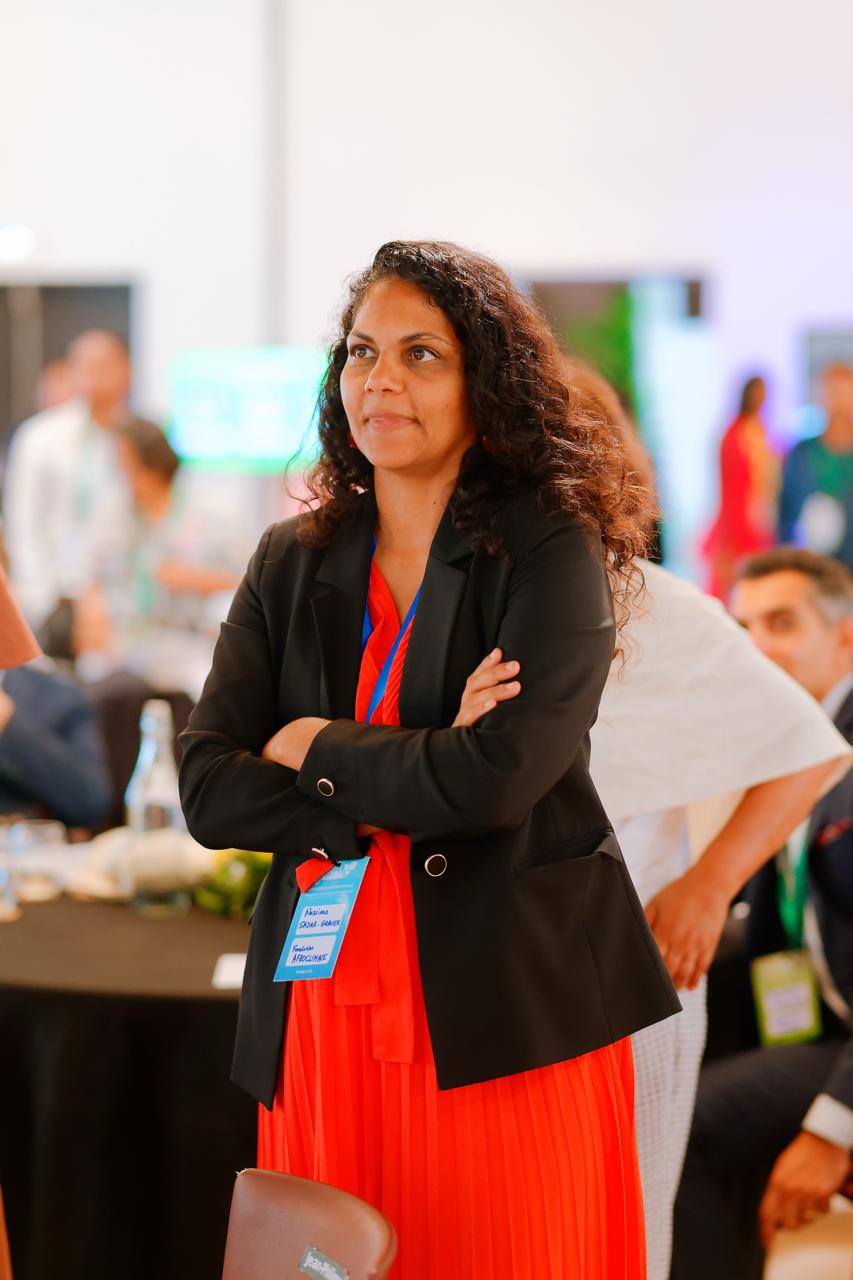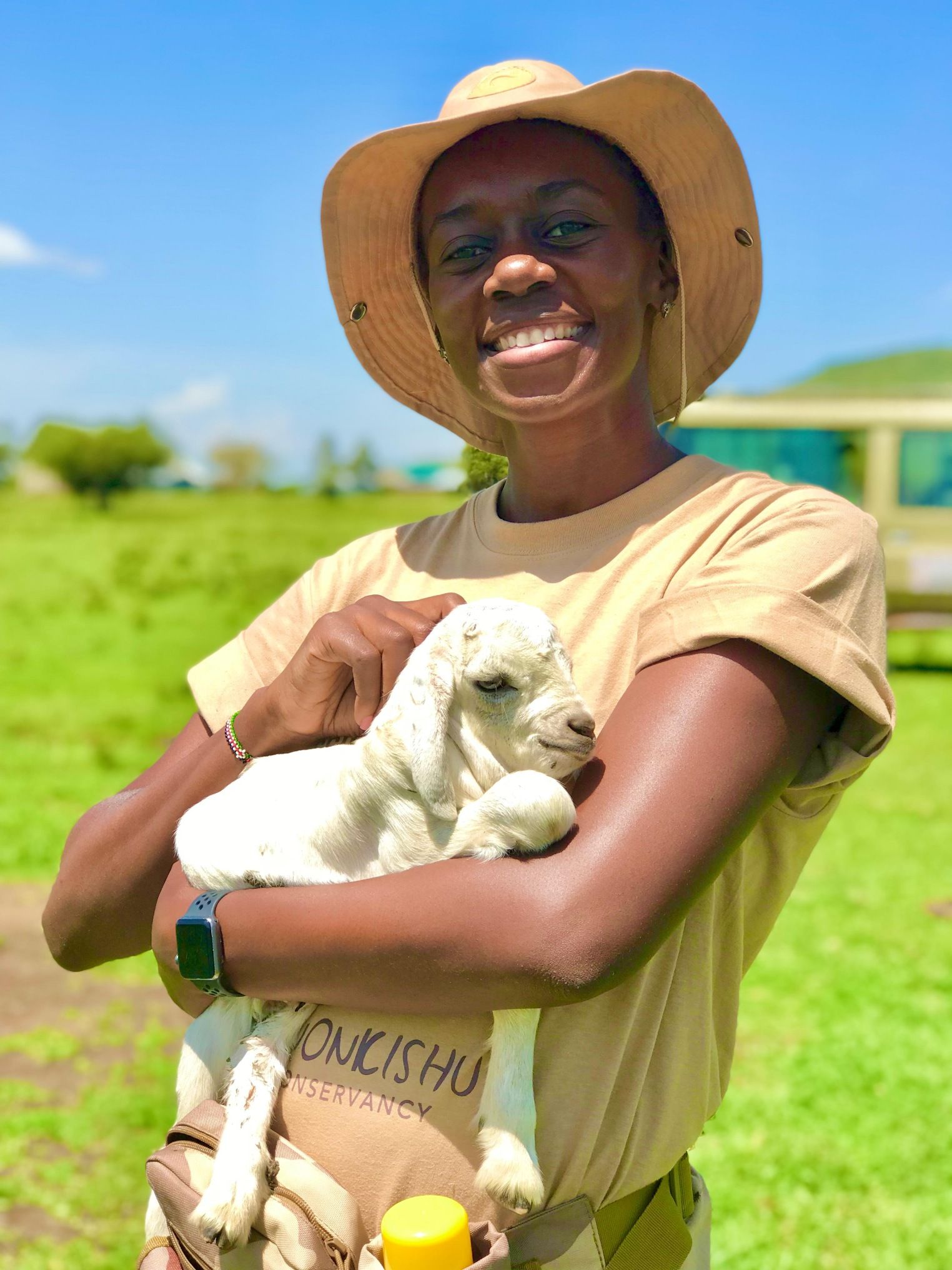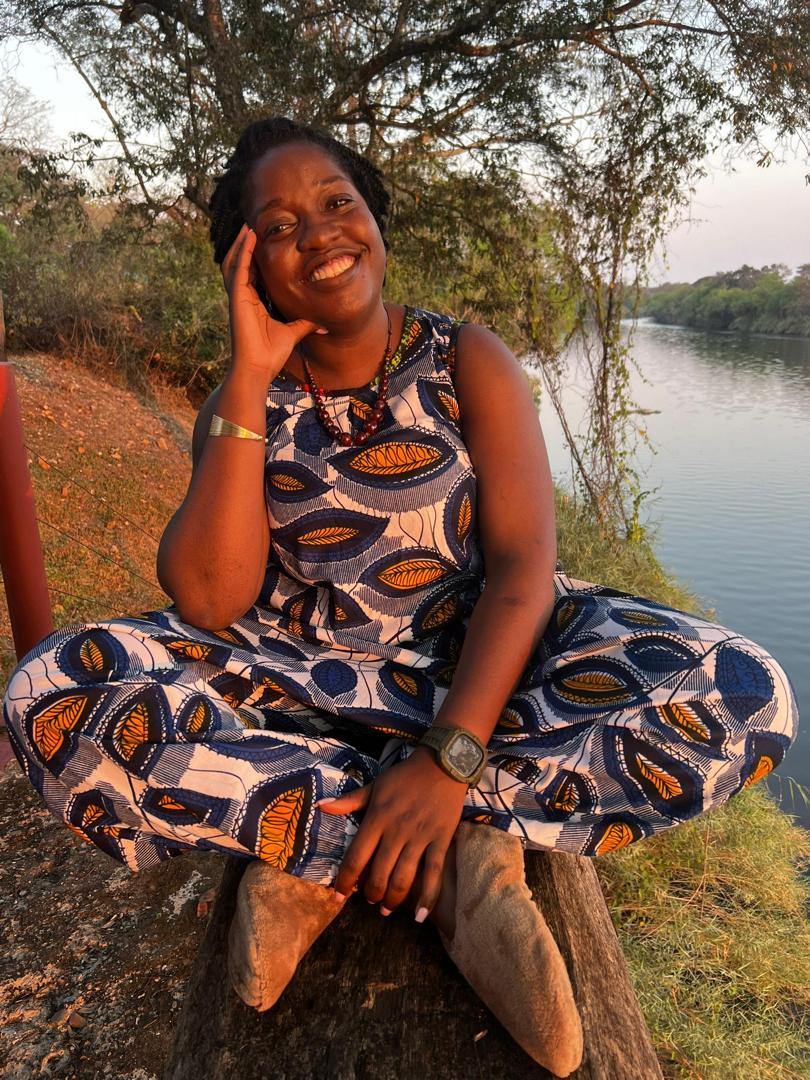Ask yourself, “What is it that you fear?” “What would you do in the absence of this fear?” Because fear isn’t real. It’s a false story we tell ourselves when we lack the courage needed to fight.
"Never bend your head; always hold it high and look the world straight in the eye," are the famous words of Helen Keller that echo the spirit of courage that defines Zainab Aliyu's journey.
Zainab's story isn't just a personal narrative; it is the driving force behind her mission to uplift the next generation of women. Her journey has taken numerous unexpected turns, eventually leading her to evolve into a passionate climate justice advocate.
As the Movement Programme Director at Climate 2025, Zainab works to empower small and medium-sized organisations and social justice groups with essential tools for success. These include capacity building, funding support, and partnerships.
She emphasises addressing the unique challenges that women and children face in climate change.
The Women for Environment 2023 fellow shares her journey with Damaris Agweyu.

Zainab, you refer to yourself as a climate justice activist. What exactly does that mean for you, and why is it important?
I will first remove the word " climate " and explain what being an activist means to me. It's about caring about an issue and doing everything possible to improve it.
Now, my career journey has added another layer to my activism. I could have gone into climate finance or conservation science, but what grabbed me was the burden of climate change on people who didn't contribute to the problem. Whether having conversations or designing programs, I am very outspoken about keeping these people at the centre of things.
How has being outspoken worked out for you so far?
Growing up was challenging. My mum, especially, saw me as the troublemaker who always spotted faults even where there weren't any. My family called me Margaret Thatcher. It made me uneasy being labelled as someone troublesome. But now, they've come around to accepting that I'm just me and even love me for it. They seek me out for honest opinions because they trust I'll shoot straight, even if it's not the nicest thing to hear. They also lean on me to unite people, so everything worked out well in my personal life.
Now, professionally, my colleagues and bosses have had diverse opinions about me. Some say I have no regard for authority; others say I'm mean but in a nice way—whatever that means. And some say I am difficult. I get it. I try to get along with people but also have a firm side. I'm very particular about ethics; if I'm uncomfortable, I can be that person who seemingly puts the brakes on progress. It doesn't sit well with everyone, especially those who prefer to move things along quickly.
The thing is, I value integrity and transparency. I want the reassurance that if you told me something is A, it will remain A when I wake up. Changing your mind is fine, but carry me along and let me know things have shifted to B. Some people don't like that because it can create conflict. But I would rather face conflict openly than pretend everything is okay. If we reach a point where getting along becomes a struggle, I have no problem walking away.
Was your conservation journey planned, or did it unfold organically?
I've always just seized opportunities as they presented themselves. As a child, I dreamt of becoming a doctor and while still in secondary school, I decided to take a shot at the entry exam. I passed, but the score wasn't enough for medical school. Surprisingly, I wasn't too upset; I was testing the waters.
Getting into university, I had the option of studying cell biology and genetics or marine biology. I chose marine biology because of the promise of field trips to the beaches in Ghana. However, I was still convinced I would be a doctor one day, so I retook the entry exam for medicine. Meanwhile, my first-year results in marine biology were outstanding, and I eventually graduated as the best student in my class.
It was confusing because I had always dreamt of one thing and was now in this new space. Everyone assumed I was thriving, but truth be told, I had no clue about my next move. I received job offers from different organisations, none of which aligned with my marine biology degree. In the end, I spent a year working in a bank. At the time, I thought it would be cool to wear those suits that bankers do.
After a year of working at the bank, I was forced to take a career break because of some painful personal events, which I will tell you about.
When I returned to the workforce, I got a job as a marine compliance officer. Yet, I was still not satisfied. I pursued a Master's in Sustainable Development focusing on Climate Change and Environment.
I worked as a sustainability consultant for a while, which was genuinely fulfilling. As time passed, I craved something new and challenging. So, once again, I decided to embark on a new journey—I pursued a PhD, focusing on climate change and justice. Even before completing my PhD, I landed my current role at Climate 2025.
This journey was not planned, but it has finally brought me to a place where my personality, characteristics, and career ambitions align. Advocating for climate justice is a perfect fit because it allows me to use my passion for fairness, equity, and justice in meaningful ways.
Can you take me back to the incident that forced you to take a career break?
That period coincided with my relationship with my ex-husband. We fell in love and decided to get married. I was only 22. Everyone was shocked, but I was in love. Immediately after we got married, I fell pregnant, and that is when everything went south. The marriage quickly turned into an abusive situation filled with lots of domestic violence.
When my daughter was three months old, I hit rock bottom and confided in my elder brother. He relayed my situation to my parents, who hatched a plan to get me out. It still took another year before I was able to leave the marriage.
My husband didn't take it well. A lot of drama ensued, and after some time, it transformed into financial abuse. He knew I wasn't working, yet he refused to contribute to our daughter's upkeep. It was a very sad period for me. I cried a lot.
Thankfully, I had a secret stash of savings from my working days. I turned to my mum and asked her to watch over my daughter while I hunted for a job. I enrolled my one-year-old in school, complete with a school bus arrangement to ease things for my mum. I was optimistic then but had no clue how I'd manage the next term.
Before my daughter even completed the term, I landed a decent job. That’s when things started looking up for me. I covered my daughter's school fees for the next term, chipped in for my parents' home since my daughter was living with them, and even gave my mum extra for her sacrifices. I also began building up my savings because I recognised that I had a long journey ahead as a single parent.
It was a tough period, but we scaled through it.
It's brave of you to share that part of your story so openly.
I think it's important because there is a huge stigma around single mums, abused women and divorced women. While my brother and parents are the only ones who knew the full extent of the abuse, I didn't feel the embarrassment that many people associate with divorce.
I realised that contrary to popular narratives, being divorced or a single mom is not the end of the world. It's sad seeing young women trapped in bad marriages. But when there are numerous untrue stories about negative outcomes for those who leave abusive relationships, it makes it hard.
My current husband came without any baggage. He was just a regular young guy, actually, an amazing guy who found love with me. He has been consistent and supportive. He has also wholeheartedly adopted my daughter, and their relationship is fantastic. His parents have been amazing.
Do you have any advice for others who may be going through a similar experience?
The most important thing you need is courage. Because it's difficult.
One year into the marriage, I was a shadow of my former self. I was dying. So I asked myself, if I am going to live a long life, do I want the rest of my years to be spent in such misery?
I desperately needed to create another option for myself. However, I recognise that not everyone perceives marriage in the same way. In my case, my upbringing didn't teach me that marriage is "for better, for worse."
Many people have been manipulated into thinking they can't make it alone. Many have lost their sense of self. So yeah, it can be complicated to convince them that there is a better world outside of their present reality. I am cautious about giving advice, as each woman's journey is unique. But from experience, I know that fear is a driving force that keeps people in bad marriages. So, ask yourself, “What is it that you fear?” “What would you do in the absence of this fear?” Because fear isn’t real. It’s a false story we tell ourselves when we lack the courage needed to fight.

What has your WE Africa journey taught you about yourself?
My coaching journey has been incredible. It has helped me understand who I am, why I'm the way I am, and why I should own certain things about myself. It's okay to be empathetic and firm at the same time.
As I reflect on all the lessons and mistakes in my life, I’ve learned that those moments when I’ve gone against my thoughts or feelings to meet others' expectations or fit into society's mould—are the ones that have stung the most. So my big takeaway is to always stay true to who I am, regardless of the situation, what people might think, or what the outcome will be.
I see this lesson as a valuable legacy to pass on, especially to my daughters. I want them to understand that being true to themselves is non-negotiable. Drown out external influences, trust your instincts, and show up as your genuine self.
WE Africa gave me a safe space to reclaim my originality and feel comfortable just being me.
Who are you?
I am a friend. Someone who wants to see you beyond the surface. Someone who wants to provide genuine support. I want you to feel seen by me.
I'm an advocate of fairness, empathy, and humanity. Those are the things that don't change regardless of the hat I wear. So, whether at work or at home, with my husband, kids or friends, I want everybody to feel safe, seen, loved, heard and supported.
Most of my academic work has focused on improving the lives of the less privileged, so even there, I still practise care and empathy.
Reflecting on my experiences and the impact of having had a coach in the past year, I recognise the need for long-term support for young ladies. They need ongoing coaching and mentorship that guides them through critical developmental stages.
At some point in the future, I want to do that for them. I still need to set a clear plan for executing this. But I'm excited about the prospect of designing programs that can really empower our girls to become well-rounded adults who are prepared for life's challenges and have the courage to face them.
***
This interview is part of a series profiling the stories of the 2023 WE Africa leadership programme fellows, African women in the environmental conservation sector who are showing up with a strong back, soft front, and wild heart.





